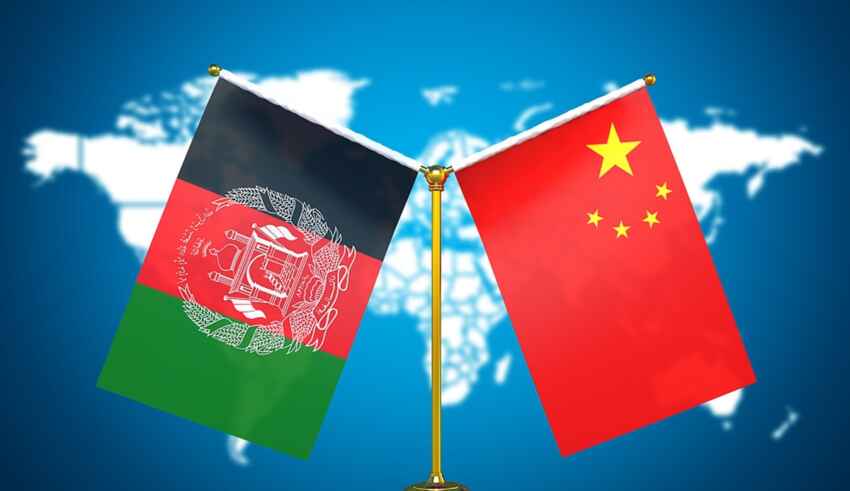
Last week a terrorist attack was carried out in Kabul, with explosive planted in a hotel popular among Chinese nationals. Responsibility was claimed by the Islamic State Khorasan Province: it happened a day after a meeting between the Chinese ambassador and the Afghan deputy foreign minister to discuss security-related matters. The ISKP, a jihadist group rival of the Taliban due to ideological reasons, is opposing to the growing Chinese political and economic footprint in Afghanistan, considering China as an imperial power willing to spread its influence through economic resources; as a matter of fact, since the US withdrawal from Afghanistan that led to the Taliban takeover, China stepped in to fill a power vacuum with the aim to stabilise the region. Nevertheless, Afghan people are those who carry the burden of the fight among governments and armed groups to gain influence over the country, being stuck in a vicious circle of violence and sufferance.
The international community and the Western States should not forget Afghanistan. A peaceful Afghanistan could foster trade and transit because it is a natural corridor since the establishment of the Silk Route, being a crossroad between Middle East, Central and South Asia. The country is rich of natural resources such as iron, copper, lithium, gemstones and fossil fuels: the potential value of its mineral deposits has been estimated to be around one trillion dollars. Notwithstanding the oil reserves within the country, from the energy perspective Afghanistan is important also because it may act as an energy bridge due to its geocentric position in the middle of the richest oil region. It may connect resources coming from resource-rich Central Asian States like Turkmenistan to industrialised South Asian countries such as India and Pakistan, and even to China: at the same time, with sanctions in place against Russia and Iran, pipelines passing through Afghanistan may be an alternative route for ensuring energy security from different sources. However, due to its security issues and human rights violations, nowadays Afghanistan is not considered a reliable commercial partner: continuous unrest and tensions undermine regional stability, with the country playing an active role in human trafficking, drug smuggling and protection of terrorist groups.
The strategic value of Afghanistan has been highlighted since long time: both in Mackinder’s Heartland theory and in Spykman’s Rimland theory Afghanistan is considered a key territory that an actor must control to rule on Eurasia. From an historical perspective, Afghanistan has always been involved in the political game of regional and global powers, starting from the time of the great empires such as Greece, Arabs, Moghul. During the Great Game it was a contested key territory between the British and the Russian empire, during the Cold War it was the scenario of rivalry between the US and the USSR: the Soviet invasion and the subsequent war that originated exercised a fundamental role in the dissolution of the Soviet Union. In the aftermath of the Cold War it has been a cluster for Islamic fundamentalism and terrorism, while after 9/11 it became a theatre for proxy wars. Nowadays, in a so-called New Great Game scenario characterised by a pivotal interest in controlling energy resources, Afghanistan finds itself in the middle of three regional security complexes, surrounded by nuclear States aiming to be regional leaders.
When having left the country, the US lost their geostrategic leverage to contrast the expanding influence of regional powers, that consider Afghanistan as the prize of the New Great Game. Furthermore, the American poorly executed withdrawal triggered the current chaos in Afghanistan, raising disappointment and betrayal among the population and contributing to create a safe haven for the spread of terrorist groups, that represent a global threat.
And this is the moment in which China entered the game, willing to enhance its role in a post-American Afghanistan from a political and economic perspective when all the Western powers were cutting their relations with the Taliban government. After the Taliban takeover, the Chinese Embassy was one of the few that decided to keep diplomatic ties with the government despite not having formally recognised it. China has sponsored economic activities aimed to foster Afghan development, announcing for example a trade liberalisation between the two States; at the same time, it is providing relevant aid packages to the government, becoming the major economic partner for Afghanistan. Moreover, Xi Jinping called for the Western countries to release Afghanistan assets and lift unilateral sanctions against members of the Taliban. The strategy that Beijing is pursuing is to stabilise Afghanistan through economic development, in order to resolve two main issues of concern. The first is the security issue related to the 76 kilometres Afghan border with the Xinjiang, with China fearing that the Taliban will keep supporting the Uyghur militants (when the US were military present within the country, China was benefitting from having a foreign power that took on the security burden). The second cause of apprehension is related to the Belt and Road Initiative: China has already made investments in Afghanistan that have been on hold because of political instability, but its long run aim is to include the country in the China-Pakistan Economic Corridor.
By disengaging from the region both in terms of military power and diplomatic effort, Western States are not only turn their backs on Afghan people in need of relief from violence and human rights abuses, but are also losing a relevant amount of influence in the entire Central Asian region as well as a potential source for energy security. Despite it will be challenging for the Taliban to remain in power and to avoid a new civil war, the significant support provided by China is going to reshape the regional and global balance of power, serving the aim of eroding the US power overseas and expediting the decline of the West as a successful global actor.
By The European Institute for International Law and International Relations.













